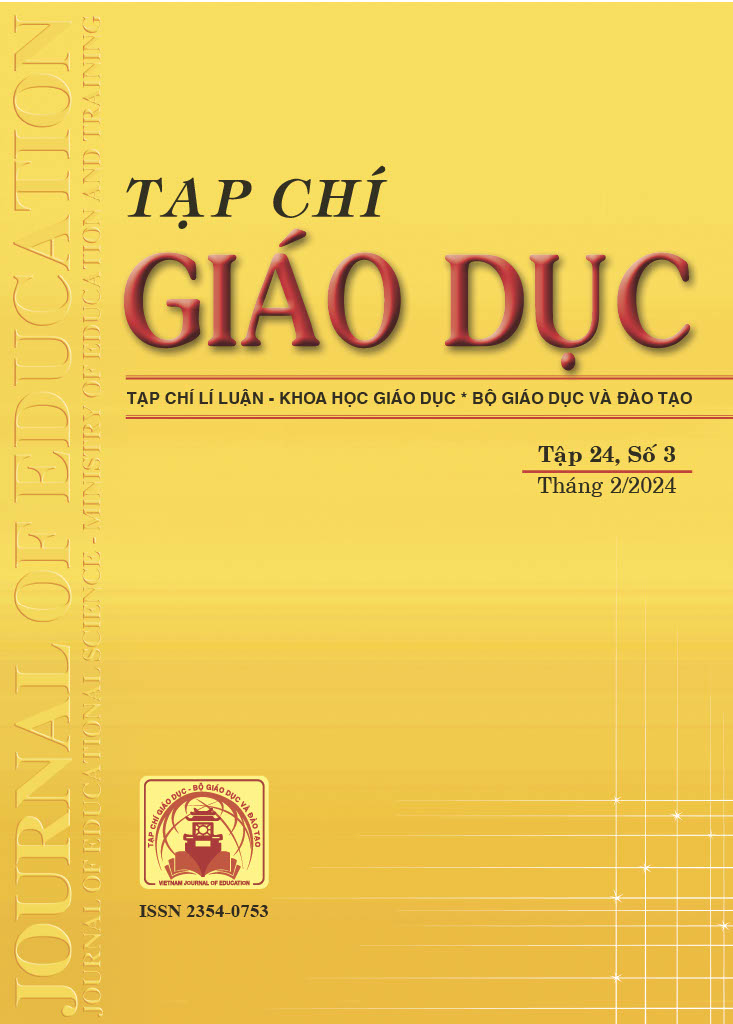Đánh giá thực trạng hỗ trợ học tập cá nhân hóa cho sinh viên tại hai trường đại học thành viên thuộc Đại học Quốc gia Hà Nội
Tóm tắt
Personalization has become an inevitable trend in all areas of life and education is also one of them. Personalized learning is a basic requirement of education 4.0, considered an educational method focusing on the needs, interests, goals and abilities of each learner. To assess the current situation of personalized learning support for students at Vietnam National University, Hanoi, the study collected survey responses from 400 students of two member universities, VNU University of Education (UEd) and University of Engineering and Technology (UET). The results show that there are five influential factors in supporting personalized learning for students, in descending order: (1) Learning support from instructors, (2) learners’ goals and progress, (3) Learners’ right to make choices about their learning, (4) Use of technology to access and support learning, (5) The connection of homework. The findings are considered a useful reference for managers in improving the effectiveness of personalized learning at universities in general and Vietnam National University, Hanoi in particular.
Tài liệu tham khảo
Brusilovsky, P. (1998). Methods and techniques of adaptive hypermedia. In Adaptive hypertext and hypermedia (pp. 1- 43). Springer.
Csikszentmihalyi, M. (1997). Flow and the psychology of discovery and invention. HarperPerennial, New York, 39, 1-16. Dewey, J. (1915). The School and Society (Chicago, University of Chicago). Press.
Dewey, J. (1998). Experience and education (ed.). West Lafayette, Ind.: Kappa Delta Pi.
Gardner, H. E. (2000). Intelligence reframed: Multiple intelligences for the 21st century. Hachette Uk.
Goleman, D. (2001). Emotional intelligence: Issues in paradigm building. The Emotionally Intelligent Workplace, 13, 26. Knowles, M. S. (1975). Self-directed learning: A guide for learners and teachers.
Lee, D., Huh, Y., Lin, C.-Y., & Reigeluth, C. M. (2018). Technology functions for personalized learning in learner-centered schools. Educational Technology Research and Development, 66, 1269-1302.
Nguyễn Thị Hằng Nga, Trần Thị Thanh Huyền (2020). Nâng cao năng lực dạy học phân hóa cho giáo viên đáp ứng Chương trình giáo dục phổ thông 2018. Tạp chí Giáo dục, 480, 5-9.
Seligman, M. E. P., & Csikszentmihalyi, M. (2000). Positive psychology: An introduction. American Psychologist, 55(1), 5-14. Shemshack, A., & Spector, J. M. (2020). A systematic literature review of personalized learning terms. Smart Learning Environments, 7(1). https://doi.org/10.1186/s40561-020-00140-9
U.S. Department of Education (2010). Transforming American Education: Learning powered by technology. E-Learning and Digital Media, 8(2), 102-105. https://doi.org/10.2304/elea.2011.8.2.102
U.S. Department of Education (2016). Future ready learning. 2016 National Education Technology Plan, 1-106. Vygotsky, L. S. (1978). Mind in society: The development of higher psychological processes. Cambridge, MA: Harvard University Press.
Tải xuống
Đã Xuất bản
Cách trích dẫn
Số
Chuyên mục
Giấy phép

Tác phẩm này được cấp phép theo Ghi nhận tác giả của Creative Commons Giấy phép quốc tế 4.0 .












